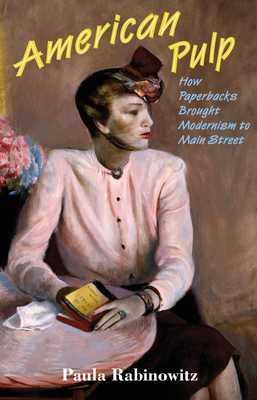Expedite your nonfiction book discovery process with Readara interviews, summaries and recommendations, Broaden your knowledge and gain insights from leading experts and scholars
In-depth, hour-long interviews with notable nonfiction authors, Gain new perspectives and ideas from the writer’s expertise and research, Valuable resource for readers and researchers
Optimize your book discovery process, Four-to eight-page summaries prepared by subject matter experts, Quickly review the book’s central messages and range of content
Books are handpicked covering a wide range of important categories and topics, Selected authors are subject experts, field professionals, or distinguished academics
Our editorial team includes books offering insights, unique views and researched-narratives in categories, Trade shows and book fairs, Book signings and in person author talks,Webinars and online events
Connect with editors and designers,Discover PR & marketing services providers, Source printers and related service providers

American Pulp: How Paperbacks Brought Modernism to Main Street
Literary Criticism > Books & Reading
- Princeton University Press
- Paperback
- 9780691173382
- 8.1 X 5.3 X 1.1 inches
- 1.3 pounds
- Literary Criticism > Books & Reading
- (Single Author) Asian American
- English
Readara.com
Book Description
A richly illustrated cultural history of the midcentury pulp paperback
There is real hope for a culture that makes it as easy to buy a book as it does a pack of cigarettes.--a civic leader quoted in a New American Library ad (1951)
American Pulp tells the story of the midcentury golden age of pulp paperbacks and how they brought modernism to Main Street, democratized literature and ideas, spurred social mobility, and helped readers fashion new identities. Drawing on extensive original research, Paula Rabinowitz unearths the far-reaching political, social, and aesthetic impact of the pulps between the late 1930s and early 1960s.
Published in vast numbers of titles, available everywhere, and sometimes selling in the millions, pulps were throwaway objects accessible to anyone with a quarter. Conventionally associated with romance, crime, and science fiction, the pulps in fact came in every genre and subject. American Pulp tells how these books ingeniously repackaged highbrow fiction and nonfiction for a mass audience, drawing in readers of every kind with promises of entertainment, enlightenment, and titillation. Focusing on important episodes in pulp history, Rabinowitz looks at the wide-ranging effects of free paperbacks distributed to World War II servicemen and women; how pulps prompted important censorship and First Amendment cases; how some gay women read pulp lesbian novels as how-to-dress manuals; the unlikely appearance in pulp science fiction of early representations of the Holocaust; how writers and artists appropriated pulp as a literary and visual style; and much more. Examining their often-lurid packaging as well as their content, American Pulp is richly illustrated with reproductions of dozens of pulp paperback covers, many in color.
A fascinating cultural history, American Pulp will change the way we look at these ephemeral yet enduringly intriguing books.
Author Bio
Paula Rabinowitz's research and teaching are in the areas of American materialist feminist cultural studies. Her work considers the interlocking roles of cinema, photography, painting and material culture in and through twentieth-century literature.
She focuses on contemporary and modernist American women’s art and literature; her work explores hidden histories within working-class, pulp and popular cultures. Her books include LABOR AND DESIRE: WOMEN'S REVOLUTIONARY FICTION IN DEPRESSION AMERICA; THEY MUST BE REPRESENTED: THE POLITICS OF DOCUMENTARY; BLACK & WHITE & NOIR: AMERICA'S PULP MODERNISM; and AMERICAN PULP: HOW PAPERBACKS BROUGHT MODERNISM TO MAIN STREET, which won the 2015 DeLong Prize for Book History Book from Society for the History of Authorship, Readers and Publishing (SHARP).
She is co-editor with Cristina Giorcelli of HABITS OF BEING, a four-volume series of essay on clothing, fashion, dress and identity; and co-editor, with Ruth Barraclough and Heather Bowen-Stryuk of RED LOVE ACROSS THE PACIFIC: POLITICAL AND SEXUAL REVOLUTIONS OF THE TWENTIETH CENTURY. She has also co-curated gallery exhibits on women and pulp fiction, women’s sound installation art and feminist film. She serves as Editor-in-Chief of the OXFORD RESEARCH ENCYCLOPEDIA OF LITERATURE.
Research Interests
American women, minority, and working-class writers
Visual culture
film, photography, media
US literary radicalism
Marxist and feminist theories
Modernisms
Cultural studies
American Studies
Education
- Ph.D.: American Culture, University of Michigan, , 1986 - none
M.A.: American Culture, University of Michigan, , 1980 - none
B.A.: American Studies, Brandeis University, , 1974 - none
Source: University of Minnesota
Videos
No Videos
Community reviews
No Community reviews

